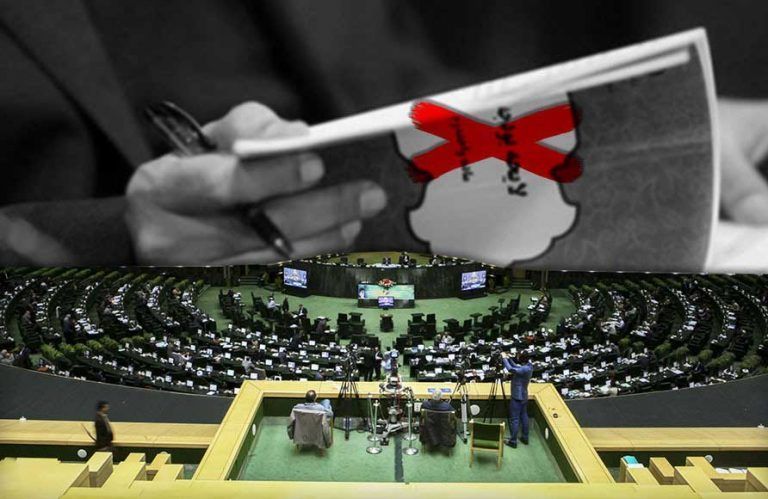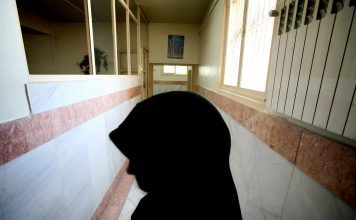By Kayhan Life Staff
On Feb. 15, Iran’s parliament, the Majlis, passed all amendments to the government’s draft 2021-22 Budget Bill, with 221 representatives voting yes, 28 voting no, and six abstaining. The Majlis had rejected the bill two weeks earlier and sent it back to the government with a list of questions and suggestions.
The following day, Mohammad Bagher Nobakht, the head of the Planning and Budget Organization, addressed an open session of the Majlis, thanking the supporters and critics of the original bill, and promised to “eliminate preferred foreign currency from the economy in the next six months.”
“The government welcomed the Majlis’ vote on the outlines of the bill and made the proposed amendments in line with the views of the Supreme Leader [Ayatollah Ali Khamenei].” Khabar Online news agency quoted Mr. Nobakht as saying. “Our goal is to control prices in line with foreign currency rates, but also increase the purchasing power of government employees.”
“The Coordination Committee of the Majlis and the Minister of Economic Affairs and Finance [Farhad Dejpasand] worked closely to increase tax revenue by $11.7 billion,” Nobakht noted. “We did not increase oil revenue, but found alternative sources of income instead. Several people had been concerned about a deficit, but the amendments will allow the government to save $8 billion, which will make up the deficit.”
“Ratifying the draft of the 2021-22 budget does not mean we have approved every article in the bill,” Shamseddin Hossein, a member of the Planning and Budget Committee of the Majlis, said.
Ehsan Khandoozi, the deputy chairperson of the Economic and Finance Committee of the Majlis, tweeted: “The government and Mr. Nobakht changed the draft of the budget bill after it was defeated in the Majlis. The Majlis has made additional amendments. I hope the Majlis’ version reduces the deficit because a few small positive measures in an inflationary budget are like a delicious dessert next to a poisonous meal.”
In comments reported by the Iranian Students News Agency (ISNA) on Feb. 16, Allahverdi Dehghani, a Majlis deputy representing Varzeghan electoral district, in the northwestern province of East Azerbaijan, said: “The Majlis rejected the 2021-22 Budget Bill because there were many problems with it, but the government’s changes are insignificant.”
“The bill does not offer a meaningful alternative to oil revenue,” Mr. Dehghani noted. “Some claim that the budget does not rely on oil revenue, which is not true. Some parts of the budget actually raise dependency on oil revenue.”
“This budget has been drafted around the resumption of talks with the U.S.,” Dehghani added.
[aesop_image img=”https://kayhanlife.com/wp-content/uploads/2019/04/Iran-majlis-4839.jpg” panorama=”off” credit=”FILE PHOTO: An Iranian Member of Parliament (MP) shakes his fist as he chants anti-Britain slogans during a debate in parliament. REUTERS” align=”center” lightbox=”on” captionsrc=”custom” captionposition=”left” revealfx=”off” overlay_revealfx=”off”]
Lotfollah Siahkali, who represents Qazvin electoral district in the Majlis, said he believed the new budget will raise the inflation rate.
“Inflation will go through the roof as soon as this bill is ratified and enacted,” Mr. Siahkali was quoted by ISNA as saying. “It will also increase the cost of living, and, therefore, it is a mistake to pass the bill.”
Mostafa Mir-Salim, a conservative Majlis deputy representing Tehran, Ray, Shemiranat, Eslamshahr, and Pardis, also said he believed the 2021-22 Budget Bill will increase the inflation rate.
“The government’s budget is more of political propaganda. Our country will face enormous problems by the end of next year if the bill is passed,” Mr. Mir-Salim warned.
Another conservative deputy, Ali Mousavi, representing Malekan, Leylan, and Mobarak Shahr, in the northeastern province of East Azerbaijan, said: “The government’s 2021-22 Budget Bill proposes raising many salaries, which are already very high,14 times their current levels. The bill does not address the livelihoods of the working and disadvantaged segments of our society.”
Some 13 specialized sub-committees will study the amended 2021-22 Budget Bill. They will submit their findings to the Coordination Committee of the Majlis.
Rahim Zare, the spokesperson for the Coordination Committee of the Majlis, said the committee members would work in three shifts to review the 2021-22 Budget Bill. He hoped the committee would complete its work by the end of next week.
This article was translated and adapted from Persian by Fardine Hamidi








